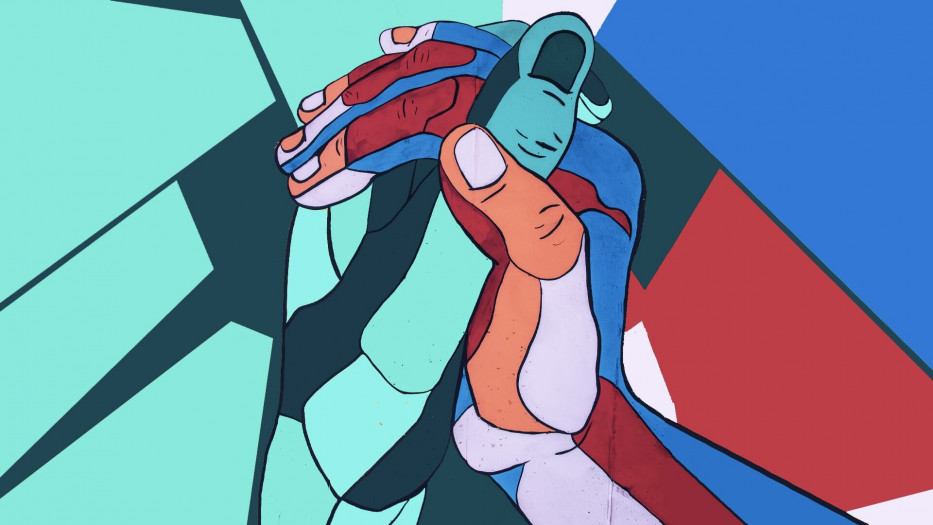

Friday 20 March 2020,
by Andy Stafford
The worldwide novel coronavirus ‘pandemic’ has demonstrated that when faced with dire consequences, governments, businesses, and the wider population are capable of responding with urgency and at scale. As the COVID-19 virus is more infectious and more deadly than seasonal flu - an endemic virus that kills hundreds of thousands of people every year- it is rightly classified as a public health emergency; a very serious concern that should galvanize all of us.
None of us is immune to this new disease, but there are actions each one of us can take to mitigate the risk to ourselves and loved ones, to level out the upward curve of the contraction rates so that healthcare facilities and the professionals working within them do not become overwhelmed by this public health emergency. This is a challenge most of us seem to have accepted. The message is clear: if everyone falls ill at the same time there just won’t be enough beds and respirators to go around so not only are our coronavirus outcomes much worse, but an overwhelmed health service means that those with other conditions may also be unable to access the urgent treatment and care they need.
We have responded because the threat is immediate and the risks to us and our loved ones are clear. Why then, when faced with the existential risk from climate change does this long-term threat leave us indifferent? It may be less of an immediate threat, but the data is clear as that from COVID-19, and the prospect much more bleak.
Not to diminish the seriousness of the current situation from either a health or business perspective, but hopefully, collectively in the long term humanity will benefit from some important lessons as a result of this coronavirus. Firstly, we might consider this a dress rehearsal for a much more deadly and infectious virus - something we are told is inevitable at some point. We have the opportunity to learn how to respond more effectively to pandemics in the future, in their containment, detection, testing, treatment and communications and handling. Imagine if rather than the 0.6- 1.0% death rate we appear to be seeing here, it was more like 50, or 60% like Ebola?
Perhaps, even more critically we will benefit from an entirely unintended consequence here too. It is ironic that the novel coronavirus, a respiratory infection, has already directly contributed to an improvement in air quality in both China and Italy. In this short time-lapse video from the European Space Agency, the reduction in air pollution, specifically nitrogen dioxide emissions, over northern Italy, which has been the focus of the national lockdown is clear to see.
The financial impacts of taking the right course of action, so often cited as prohibitive in combating climate change, have become secondary in the current crisis. The threat of COVID-19 has relegated usual financial considerations for governments, and with more of us working remotely, we will have inadvertently changed our behaviour towards one that is more sustainable for the planet.
This is a change of behaviour that, without an immediate threat to our health and wellbeing, we would be extremely reluctant to adopt. Without urgency, our motivation to change is low. Perhaps, the enforced experience of working from home will alleviate reticence to the idea, and with the personal benefits for those working from home, such as more family and leisure time, our changed behaviour will become a habit. Perhaps we will see that we can continue to reduce emissions - especially from air travel - in the longer term and instead contribute to an improvement in our individual and collective health.
Supermarkets are under increasing pressure due to panic buying; one could only imagine what would happen if travel restrictions were extended from human to freight. But that global production and trade remains unaffected does not feel a foregone conclusion in such an uncertain time. Shifting towards a more locally-focused approach for the goods and services that we buy makes sound practical and ecological sense. Applying a much greater interest in the provenance of those goods, now that they feel less somehow more vulnerable, is logical, and demanding that, where those goods are not local, that they have been produced sustainably across the entire supply-chain should also be demanded.
It doesn’t feel like it right now but climate change is the biggest health challenge that we all face this century; not COVID-19, or any other virus for that matter. Not just in the ultimate existential threat posed by a warming climate and our failure to change, but the increasing threat that it poses to our health right now.
The World Health Organisation (WHO) currently puts the estimated deaths due to pollution from human activity and climate change at 7 million per year. There is growing acceptance that climate change is having an increased impact across a wide range of conditions from asthma, cardiovascular disease, kidney strain, auto-immune diseases, allergies, infectious diseases, pregnancy complications, allergies, and of course, the increased incidence in infectious diseases, due to warmer and wetter conditions that allow viruses to thrive. It is false to say that a killer virus would be triggered by climate change, but increasing levels of humans and our activity is certainly creating the conditions to make it more welcome.
As we are all now well aware, the birthplace of this coronavirus was a market in Wuhan. This ‘wet’ market puts both wild and domesticated animals, both dead and alive, in constant close contact, giving viruses the opportunity to jump between host species. It also provides us with a rather stark metaphor for our increased encroachment into the natural world, its ecosystems and habitats, and a disregard for the lives of those within it. Perhaps COVID-19 has done us another favour here; reminding us that we do not control nature. We live within it, rely on it to sustain us, and are still very much at its mercy - even if we can’t see the threat on a day to day basis.
In responding to the novel coronavirus, apparently 50% of China’s medical care was moved online. One does not need to travel into GP surgeries to request a repeat prescription, and diagnoses, treatment and ongoing support for some medical conditions can also be provided online. The Chinese government’s motivation was to socially distance ill people in order to slow down the spread of the virus, but the outcome has been a shift towards greater digital adoption and with the consequence of reduced travel.
The use of digital in healthcare is nothing new, but the case for it being further adopted and scaled by both public and private enterprise is compelling. There are huge opportunities to foster innovation via a wide variety of digital health interventions designed to improve health across the planet directly and indirectly for people both rich and poor. Digital interventions, platforms and support are even more relevant when we consider that there is a current shortfall of more than 2 million healthcare professionals globally, with many more projected in the future.
But what about the use of digital technology to reach and engage with patients? Won’t this be more difficult? Of course, nothing will replace the genuine need for close physical human contact to build trust and long-term relationships, but more judicious physical meetings can be supported and enhanced by digital communications that deliver a far more tailored experience at scale.
The life-sciences industry, for instance, can run ad boards, and congress events virtually, and use digital to reach, inform, and engage healthcare professionals, patients, and wider audiences very effectively indeed, regardless of whether physical events or meetings happen or not. Effective medical education online is nothing new and is improving all the time.
It is notable that misinformation, and unreliable or unhelpful spokespeople and media sources have proliferated, in spite of the lives that are at stake in this current healthcare crisis. Room needs to be made for the real experts to be able to communicate clearly and forcefully over the ‘fake news’. Hopefully this crisis will help to reassert the real expert voices that we need across all walks of life, especially in public health emergencies. Where the climate emergency is concerned, healthcare professionals, as one of the most trusted professions, must step up here; a case made recently by The Lancet!
There are clearly some overlapping themes between a rampant virus, near run-away climate change, digital health, and behaviour change. The following points reflect learnings from the current emergency and the opportunities for more reasons to be cheerful in the future:
It is impossible to say at this point whilst we are in the ‘middle’ of such unprecedented circumstances what effect that this will have on all of us personally. How will it affect the way that we see and interact with the world and everyone in it? Maybe fundamentally, but let us hope that lessons are learnt from COVID-19 so that the next virus does not inadvertently provide the most effective solution to climate change possible by decimating the human population.

